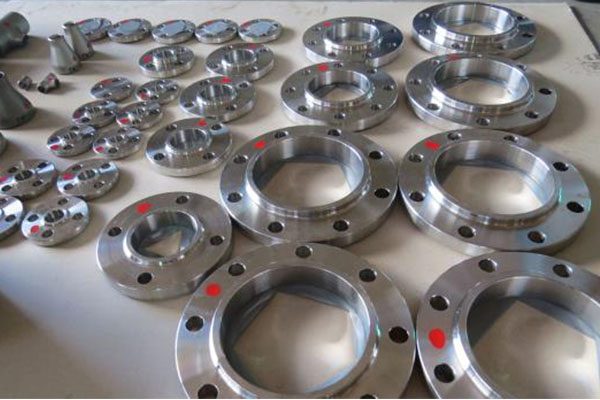
In the demanding landscape of industrial piping, where corrosion resistance and high-temperature performance are paramount, the choice of materials is critical. Among the elite options available, nickel 200 flanges stand out as a beacon of reliability and durability. These flanges, crafted from commercially pure nickel, offer exceptional resistance to a wide range of corrosive environments, making them indispensable in various critical applications.
Nickel 200, a wrought nickel with a minimum nickel content of 99.6%, is renowned for its remarkable resistance to corrosion, particularly in alkaline and neutral salt solutions. It also exhibits excellent resistance to dry gases at room temperature and elevated temperatures. This combination of properties makes nickel 200 flanges a preferred choice for industries dealing with harsh chemicals, food processing, and high-temperature environments.
Understanding the Properties of Nickel 200
Before delving into the applications of nickel 200 flanges, it’s essential to understand the material’s key properties:
- Excellent Corrosion Resistance: Nickel 200 is highly resistant to corrosive environments, including alkalis, neutral salt solutions, and dry gases.
- High-Temperature Strength: It maintains its strength and integrity at elevated temperatures, making it suitable for high-temperature applications.
- Good Thermal and Electrical Conductivity: Nickel 200 exhibits good thermal and electrical conductivity.
- Low Gas Content: It has a low gas content, which is crucial for vacuum applications.
- Good Weldability: Nickel 200 can be readily welded using various welding techniques.
These properties make nickel 200 an ideal material for flanges that must withstand harsh conditions and maintain their structural integrity over time.
Applications of Nickel 200 Flanges
The exceptional properties of nickel 200 flanges make them suitable for a wide range of applications, including:
- Chemical Processing: In chemical plants, nickel 200 flanges are used in piping systems that handle corrosive chemicals, such as caustic alkalis and hydrochloric acid.
- Food Processing: Nickel 200 is approved for use in food processing equipment due to its corrosion resistance and purity. Flanges made from this material are used in various food processing applications.
- Electronic Components: Due to its good electrical conductivity and low gas content, nickel 200 is used in electronic components.
- Aerospace: In aerospace applications, nickel 200 flanges are used in high-temperature environments and corrosive atmospheres.
- Marine Applications: Because of its resistance to saltwater corrosion, Nickel 200 is used in some marine applications.
- Caustic Handling: Nickel 200 is very well known for handling caustic solutions.
Advantages of Using Nickel 200 Flanges
Choosing nickel 200 flanges offers several significant advantages:
- Superior Corrosion Resistance: They provide exceptional resistance to a wide range of corrosive environments.
- Long Service Life: Their durability and corrosion resistance contribute to a long service life, reducing maintenance costs and downtime.
- High Purity: Nickel 200 is a commercially pure material, making it suitable for applications where purity is critical.
- Reliability: They offer reliable performance in demanding environments, ensuring the safety and efficiency of piping systems.
- Versatility: They are available in various sizes and configurations, making them suitable for diverse applications.
Installation and Maintenance Considerations
When installing nickel 200 flanges, it’s crucial to follow proper welding procedures to ensure a strong and leak-free joint. Regular inspections should be conducted to detect any signs of corrosion or damage.
Proper cleaning and maintenance practices can further extend the service life of nickel 200 flanges.
Conclusion
Nickel 200 flanges are a testament to the importance of material selection in industrial piping. Their exceptional corrosion resistance, high-temperature strength, and reliability make them an indispensable component in various critical applications. By understanding the properties of nickel 200 and following proper installation and maintenance procedures, engineers and designers can leverage the benefits of these flanges to create robust and long-lasting piping systems.




Leave a Reply